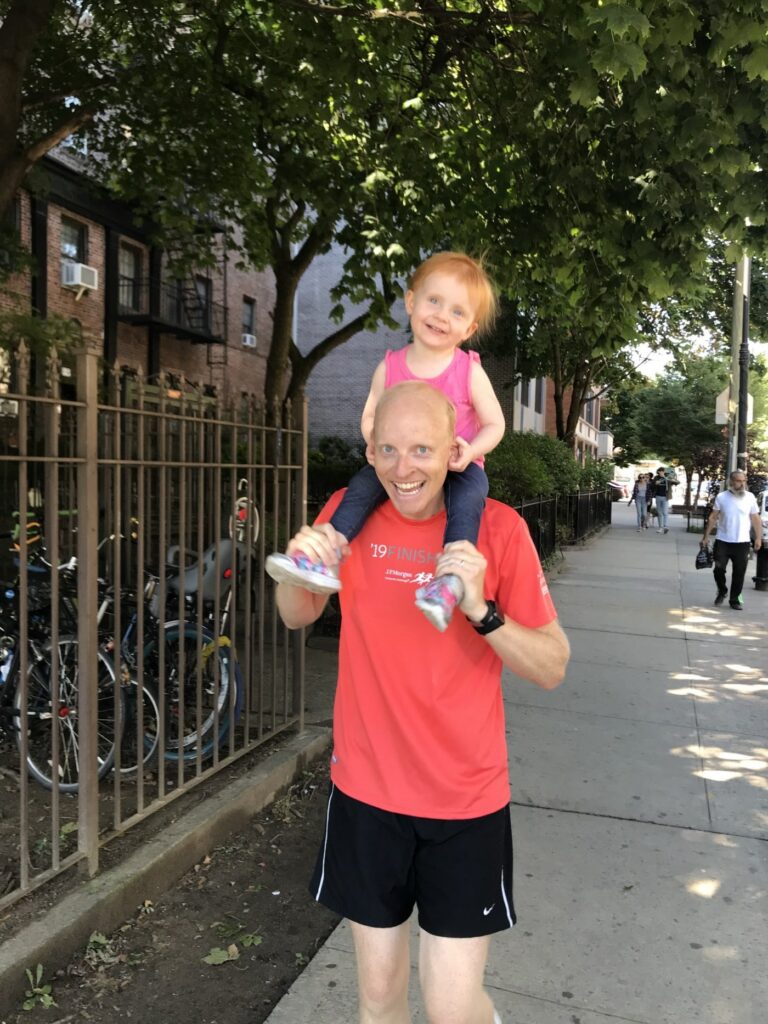I was diagnosed with testicular cancer at 26, when I was finishing up my graduate degree. In my mid-twenties I would have expected a diagnosis of a broken bone or a broken heart but not cancer. My disdain for hospitals made it amazing that I was diagnosed at all but a gut feeling, and some thoughtful doctors, were able to catch it early.
After my urologist discovered the lump, the proposed course of action was surgery, and quickly. I was young and stubborn so I convinced myself that I would go through this process myself. I was far from home and waited long enough to tell my parents that they didn’t have time to come help me. I told them it wasn’t a big deal and that it would take some time to get the results of the biopsy back. No one in their mid-twenties ever wants to go back to their mid-teens life. I was an adult and had established 1,000 miles of independence. I made my own (questionable) decisions and lived with the consequences. I figured this was just a part of adult life that I would need to figure out, like buying a car or filing taxes. This was my responsibility and I was going to handle it — alone.
I’m telling you, that was the wrong decision. The surgery went well but I had a hard time coming off the anesthesia and had to spend the night in the hospital. I had a friend pick me up the next day, as the hospital wouldn’t allow me to take a cab, and he very kindly took me to get some food and my medications. He dropped me at my girlfriend’s house, who was out of town for the week, and I spent the next several days by myself dealing with the pain from the surgery and the uncertainty of the diagnosis.
My parents and family were also dealing with this alone. They felt helpless because I would not let them help. I didn’t want to burden them with my problem, but I couldn’t spare them from the fear and anxiety of being so far away from a son dealing with a cancer diagnosis. We couldn’t process this together and that ended up making it harder for everyone.
It’s interesting to think back on that period of my life, where I voluntarily decided to isolate myself, during the current period of my life. I am currently confined to a small Brooklyn apartment in the middle of the raging COVID-19 pandemic. I have been here with my wife and 2-year-old daughter for weeks, isolated from friends, family, and the thousands of New Yorkers and tourists that I would interact with daily. My 26-year-old self would probably have dug in and stubbornly refused any help. And I might have cut off communication with friends and family from outside of NYC so they wouldn’t have to worry as much.
Instead I’m trying to communicate more. I reach out to people and we talk about how scary it is in NYC right now, but also how we are safe and healthy and taking necessary precautions. I’m also trying to be more open about how I’m processing our current situation. As a cancer survivor, I still have some negative associations with hospitals, so it’s scary to read what’s going on in my city. But rather than internalize it, I talk about it with my wife and it’s helped me find a comfort level in this new world we’re living in.
This pandemic has been so challenging because it has forced everyone to be solitary, but the lesson I learned from my cancer diagnosis is that we are not alone. So many others are experiencing this at the same time; it might not be the same experience, but it is a tie that binds us together. And by reaching out and connecting, we can get through this together.
By Russ Dudley

